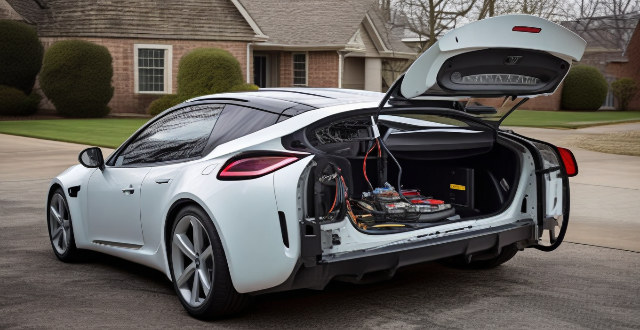Converting a regular diesel car into a diesel hybrid is possible but involves technical challenges, high costs, and potential legal and warranty issues. It requires installing a battery pack, integrating electric motors, and modifying the drivetrain and control systems. Professional assistance is recommended due to the complexity of the project. The financial investment may not be justified compared to buying a new hybrid vehicle. Legally, modifications could void the warranty and affect insurance coverage, and compliance with emissions and safety standards must be ensured.

Can You Convert a Regular Diesel Car into a Diesel Hybrid Car?
The concept of converting a regular diesel car into a diesel hybrid vehicle is an intriguing proposition, especially for those seeking to improve fuel efficiency and reduce emissions. However, the process involves complex modifications and considerations that go beyond a simple DIY project. Here's a detailed exploration:
Technical Challenges and Considerations
*Electrical System Integration*
- Battery Pack Installation: A key component of any hybrid system is its battery pack. This requires space optimization and careful installation to ensure it does not interfere with existing vehicle mechanics.
- Charging Mechanism: The integration of a battery charging system that can efficiently recharge the batteries using regenerative braking and other means is essential.
*Drivetrain Modifications*
- Addition of Electric Motor(s): Integrating electric motors into the car's drivetrain requires precise engineering to manage power distribution between the diesel engine and electric motors effectively.
- Control Systems: Advanced control systems are necessary to coordinate the operation of both the diesel engine and electric motors, optimizing performance and efficiency.
*Fuel Efficiency and Emissions*
- Regenerative Braking: Implementing regenerative braking technology captures energy usually lost during braking, improving overall fuel efficiency.
- Emission Reduction: While diesel engines are known for their efficiency, they also produce emissions. A well-designed hybrid system can help offset some of these emissions by relying more on electric power when possible.
Professional Assistance and Cost Considerations
*Expertise Required*
- Consultation with Experts: Given the complexity of converting a diesel vehicle into a hybrid, consulting with professionals who specialize in automotive electrical systems and drivetrain modifications is highly recommended.
- Customization: Each conversion will likely be unique, requiring custom solutions that cater to the specific make and model of the vehicle.
*Financial Investment*
- High Costs: The cost of parts and professional services required for such a conversion can be significant, potentially making it less economical than purchasing a new hybrid vehicle.
- Return on Investment: Evaluating the potential savings in fuel costs against the upfront investment is crucial to determine if the conversion makes financial sense in the long term.
Legal and Warranty Implications
*Vehicle Warranty*
- Voided Warranty: Modifying a vehicle's drivetrain and electrical systems could void the existing manufacturer warranty.
- Insurance Liability: Some insurance companies may refuse coverage or increase premiums for vehicles with significant modifications.
*Compliance Standards*
- Emissions Standards: Ensuring that the converted vehicle meets local emissions standards is important to avoid legal issues.
- Safety Certification: The modified vehicle must undergo safety testing to ensure it meets road safety standards.
Conclusion
While converting a regular diesel car into a diesel hybrid is theoretically possible, it presents numerous technical challenges, high costs, and potential legal and warranty implications. For most individuals, the complexity and expense involved may not justify the undertaking compared to buying a factory-produced hybrid vehicle. However, for those with the technical expertise, financial resources, and passion for such projects, it could be a rewarding venture that combines environmental stewardship with automotive innovation.